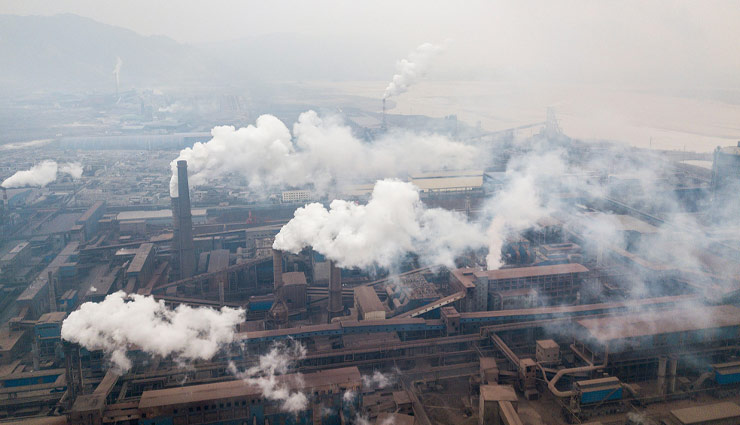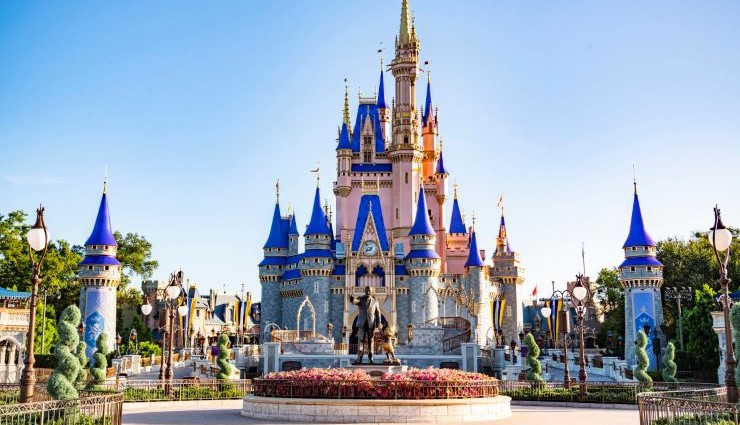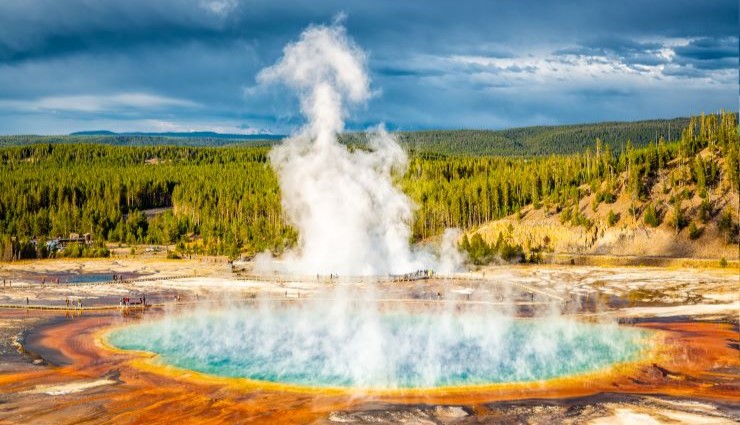Air pollution is one of the leading causes of death worldwide; it threatens the lives of children, adults, and all living beings every year, and it is only possible to deal with it through the strict implementation of the clean air law. This article introduces a list of the most polluted cities in the world without ranking in pollution level. Ironically, most of them are located in the Middle East region. Be with us.
1. Dammam City in Saudi Arabia
Concentration of particles smaller than 2.5 microns: 124.11 micrograms per cubic meter
The port city of Dammam in Saudi Arabia, with a population of approximately 1,250,000 people, is currently the fifth most populated city in Saudi Arabia and the most polluted city in the world. This industrial city is considered the main base of the Saudi oil industry. Due to the oil-rich region and important government offices, thick fog, and smoke are consistently observed in the air.
2. Lahore city in Pakistan
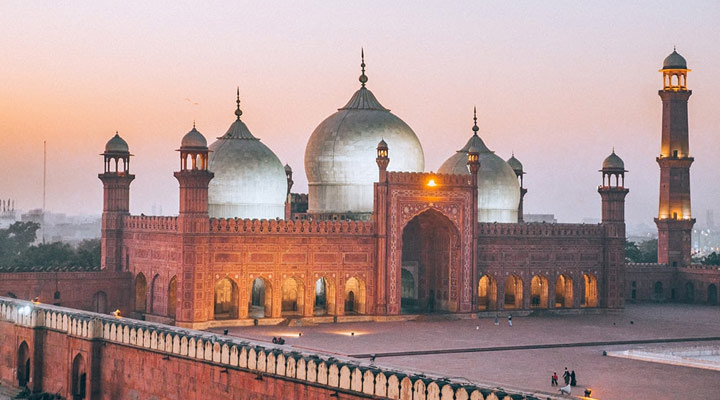
The concentration of particles smaller than 2.5 microns: 111.63 micrograms per cubic meter
Lahore is Pakistan’s second most populous city, with a population of over 13 million. In addition to the constant congestion and urban activities that are the leading causes of air pollution in the region, other factors such as the abundance of brick kilns, burning of fields, violations of environmental policies by industries, and the use of worn-out cars by citizens, have worsened the unhealthy air condition of this city.
3. Dhaka city in Bangladesh
The concentration of particles smaller than 2.5 microns: 84.73 micrograms per cubic meter
Dhaka is a prime example of a developing town struggling with chronic pollution. This big and important city with a population of 17 million has such polluted air due to the large construction volume and urban traffic that breathing in is equivalent to consuming 1.7 cigarettes a day!
4. Delhi City in India
The concentration of particles smaller than 2.5 microns: 84.39 micrograms per cubic meter
Delhi is the capital of India and one of the most polluted cities in the world in 2022. The growing population of this city is estimated to be more than 32 million people, and its water, soil, and air are so polluted that it is considered one of the ten most polluted cities in the world! Especially after the end of the Diwali celebration, which covers the entire city with smoke and steam.
5. Muzaffarnagar city in India
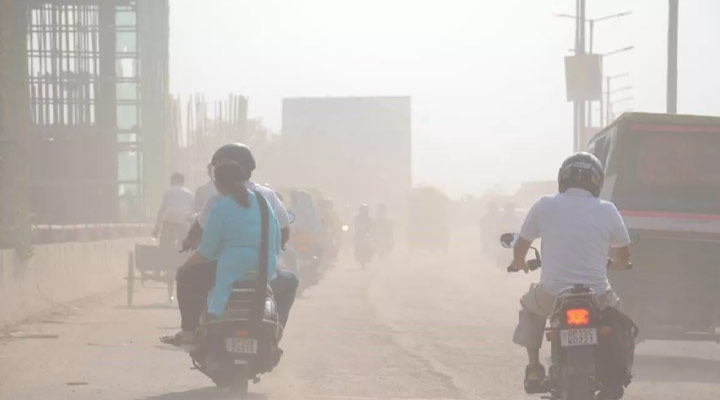
The concentration of particles smaller than 2.5 microns: 81.35 micrograms per cubic meter
Muzaffarnagar, located in the Uttar Pradesh region, is the location of many large sugar, steel, and paper factories in India. Although the existence of these factories provides an excellent opportunity for the residents of the region to be employed, the price is a severe reduction in the quality of the city’s air, which every living being in this region pays for with their health.
6. Baghdad City in Iraq
The concentration of particles smaller than 2.5 microns: 77.62 micrograms per cubic meter
7. Ghaziabad city in India
The concentration of particles smaller than 2.5 microns: 74.72 micrograms per cubic meter
Ghaziabad is another city in the Uttar Pradesh region of India, and if you care about your health, it is better not to travel to it for recreation and accommodation. The bad air quality of this city is the result of 1 million and 729 thousand people and the production of famous oil engines in this region.
8. Patna city in India
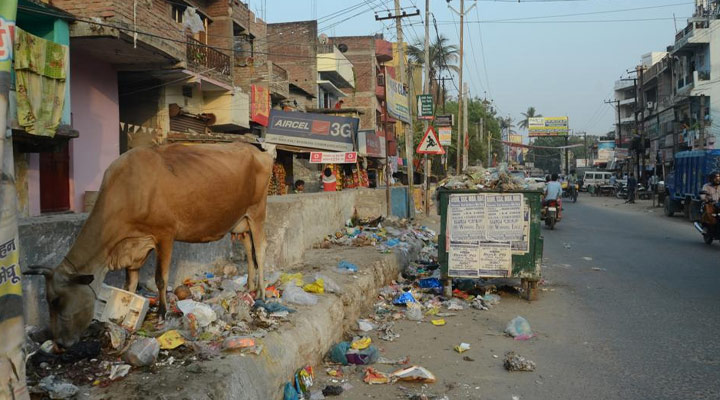
The concentration of particles smaller than 2.5 microns: 67.2 micrograms per cubic meter
The historic and crowded town of Patneh on the south bank of the Ganges River is one of the most polluted cities in the world. Therefore it is neither a good destination for traveling nor an excellent place to stay, especially considering the increasing number of heart and respiratory patients, which has nothing to do with traffic. It is not severe and disregards the laws related to clean air.
9. Peshawar city in Pakistan
Concentration of particles smaller than 2.5 microns: 66.15 micrograms per cubic meter
Peshawar is a big city with a population of 2.3 million, with various flowers and greenery in four seasons. However, due to the high number of terrorism and violence, industrial facilities, burning of solid waste, brick kilns, and increased smoke from cars, it is not considered a clean or safe city.
10. Lucknow city in India
The concentration of particles smaller than 2.5 microns: 63.65 micrograms per cubic meter
Despite their endless beauty, India is full of poor air quality cities, and Lucknow is one of the most polluted. Currently, the concentration of suspended microparticles smaller than 2.5 microns in this city is 5.5 times the allowed amount, the most important factor of which is the population of almost 4 million people.
11. East London City in South Africa
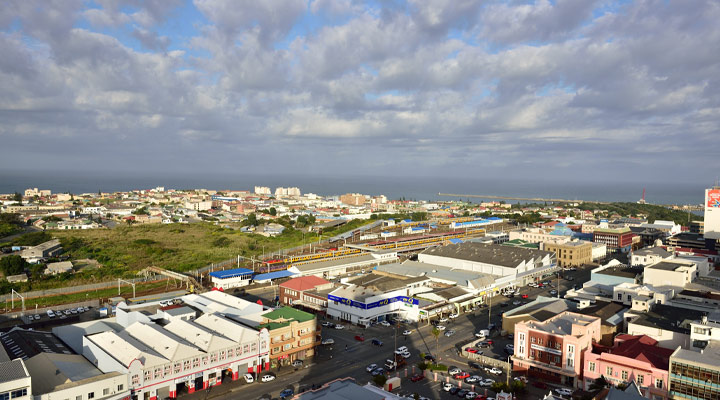
The concentration of particles smaller than 2.5 microns: 60.69 micrograms per cubic meter
East London, a popular tourist destination in South Africa’s Eastern Cape province, is known for its quiet beaches and rich history. Still, in recent years it has attracted attention for high pollution and poor air quality. Undoubtedly, one of the reasons is this city’s enormous population, estimated to be 267 thousand people in 2022.
12. Pokhara City in Nepal
The concentration of particles smaller than 2.5 microns: 59.15 micrograms per cubic meter
Another one of the most polluted cities in the world is the beautiful city of Pokhara, which has an alarming pollution index despite its beautiful nature and rich flora and fauna. Pokhara is Nepal’s second most populous city, and many of its environmental concerns are caused by this overcrowding.
13. Manama City in Bahrain
The concentration of particles smaller than 2.5 microns: 57.35 micrograms per cubic meter
The town of Manama, with a population of more than 708 thousand people, is the capital of Bahrain and the largest city in this Arab country. Of course, all the luxurious and magnificent ports, advanced attractions, and stunning beauty of this city only look beautiful from a distance because the annual average concentration of particles smaller than 2.5 microns is much higher than the recommended level, making life in this area unsafe for its residents.
14. Chandigarh city in India
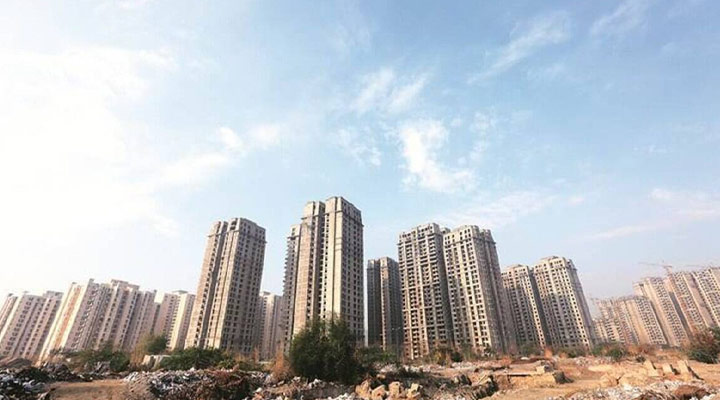
The concentration of particles smaller than 2.5 microns: 53.16 micrograms per cubic meter
Although the city of Chandigarh owes all its innovative beauty to Le Corbusier, the famous French architect, and is the first in India in terms of cleanliness, its air quality does not meet the expectations of the city’s designers. The smog of this city is so thick that it does not allow anyone to see and reduces the quality of people’s lives.
15. Hawalli City in Kuwait
The concentration of particles smaller than 2.5 microns: 52.24 micrograms per cubic meter
The town of Hawalli was one of the most polluted cities in the world in 2021, and this issue is not strange considering the oil-richness of this region. Excavation of land and burning of fossil fuels are all crucial factors of air pollution, which, along with the city’s population of 220,000 people, hurt this region’s air quality.
16. Khorramshahr city in Iran
The concentration of particles smaller than 2.5 microns: 51.44 micrograms per cubic meter
According to the census conducted and the report of the World Health Organization, the beautiful town of Khorramshahr, with a population of about 171,000 people, is considered one of the most polluted cities in Iran. Of course, the world has changed due to the rapid growth of the population, frequent dust storms, and dried-up rivers.
17. Xi’an City in China
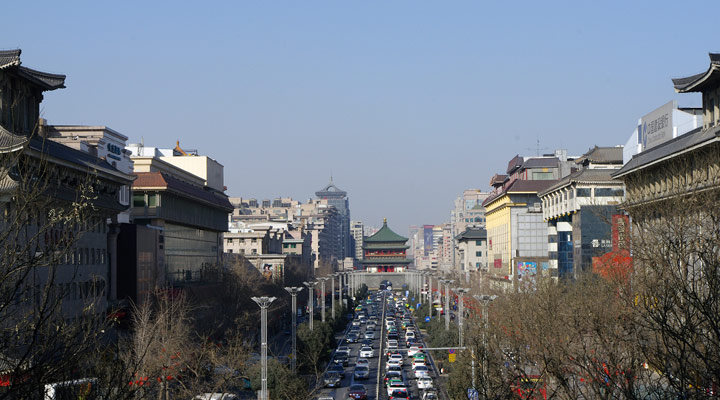
Concentration of particles smaller than 2.5 microns: 48.11 micrograms per cubic meter
Xi’an is one of China’s four great ancient capitals and the capital of Shaanxi province, whose air pollution in the cold seasons (autumn and winter) is more than in the hot seasons due to temperature inversion. The main culprit of this city’s unhealthy air can be the burning of coal, dust, and vehicle emissions.
18. Calcutta city in India
The concentration of particles smaller than 2.5 microns: 46.77 micrograms per cubic meter
Calcutta is one of India’s most critical commercial, educational, and cultural centers. Of course, due to heavy crowding and traffic, this city is considered one of the most polluted cities in the world. Only in 2021, the cost of this city’s unfavorable air quality on its economy was equal to 3.3 billion dollars!
19. Xinjiang City in China
The concentration of particles smaller than 2.5 microns: 46.05 micrograms per cubic meter
The town of Xinjiang is located in the northern region of Henan province of China and is considered one of the most polluted cities in the world. Xinjiang’s air pollution is not only due to coal-fired power plants but also to the abundance of mines and industrial factories, underground coal mine fires, and pollution from vehicle traffic.
20. Kampala city in Uganda
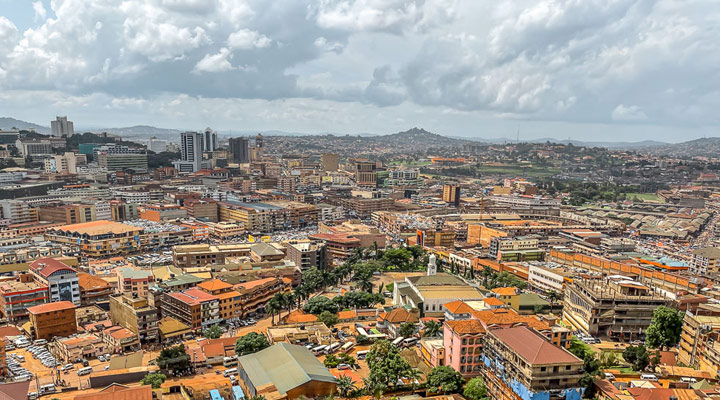
The concentration of particles smaller than 2.5 microns: 44.99 micrograms per cubic meter
The extensive and populous city of Kampala, despite its various natural, mineral, and industrial resources, is on the list of the most polluted cities in the world. The concentration of particles smaller than 2.5 microns is estimated to be 1.4 times the standard value. This amount of pollution can be justified due to the rapid growth of the population, exhaust fumes of cars, burning of residential waste, and smoke from cooking stoves.
21. Shuchang City in China
The concentration of particles smaller than 2.5 microns: 44.88 micrograms per cubic meter
The town of Shuchang, located in the Henan province of China, with a population of 4.5 million people, an air pollution index of 152, and a high concentration of particles smaller than 2.5 microns, which is 11.5 times the recommended value, is one of the most polluted cities in the world. Among the ways to deal with pollution in this city, we can mention reducing coal consumption, improving energy efficiency in the industrial and construction sectors, and increasing the supply of renewable energy.
22. Bamako city in Mali
The concentration of particles smaller than 2.5 microns: 44.88 micrograms per cubic meter
Bamako, with a population of 1.8 million, is the capital of the Republic of Mali and the largest city in this country. The pollution level of this city is 7.1 times the standard value, which places it in the group of cities with unhealthy air. The cause of this pollution is dust storms, emission of greenhouse gases from vehicles, and much use of fossil fuels.
